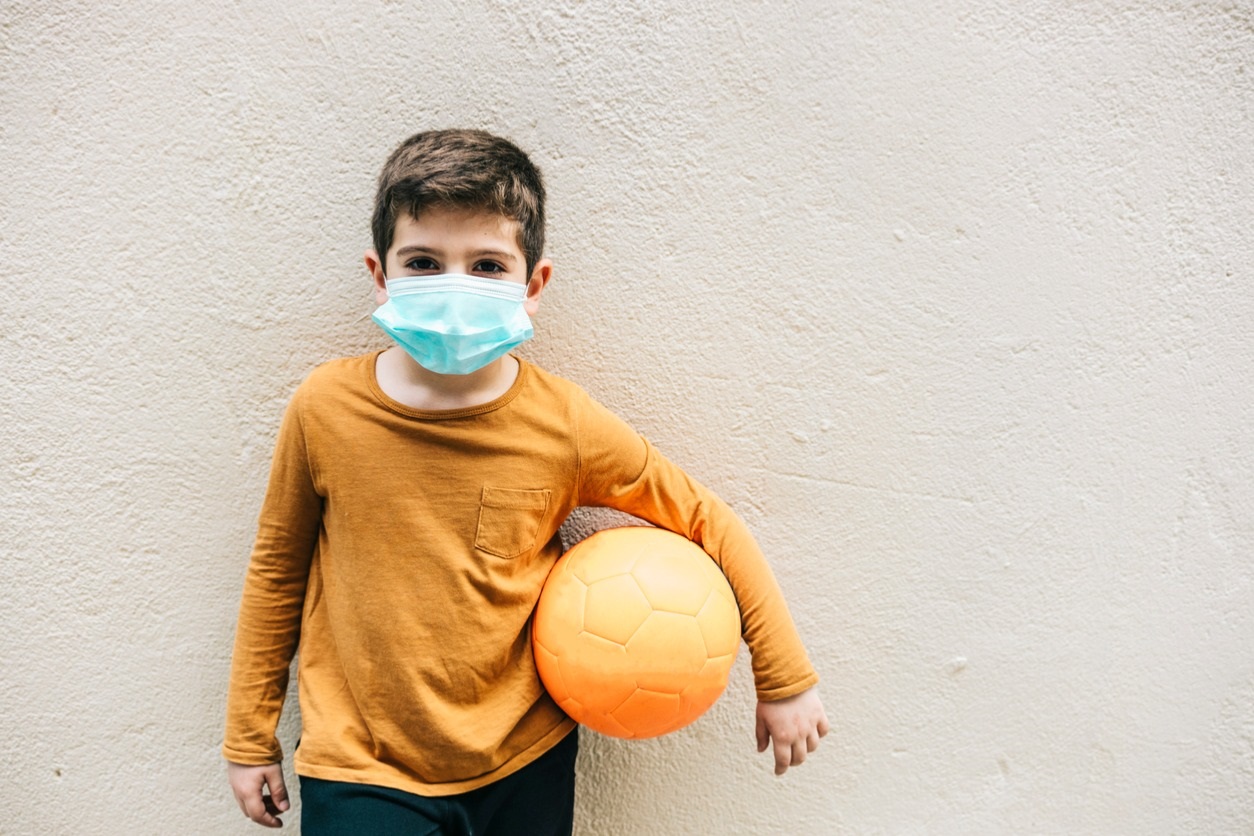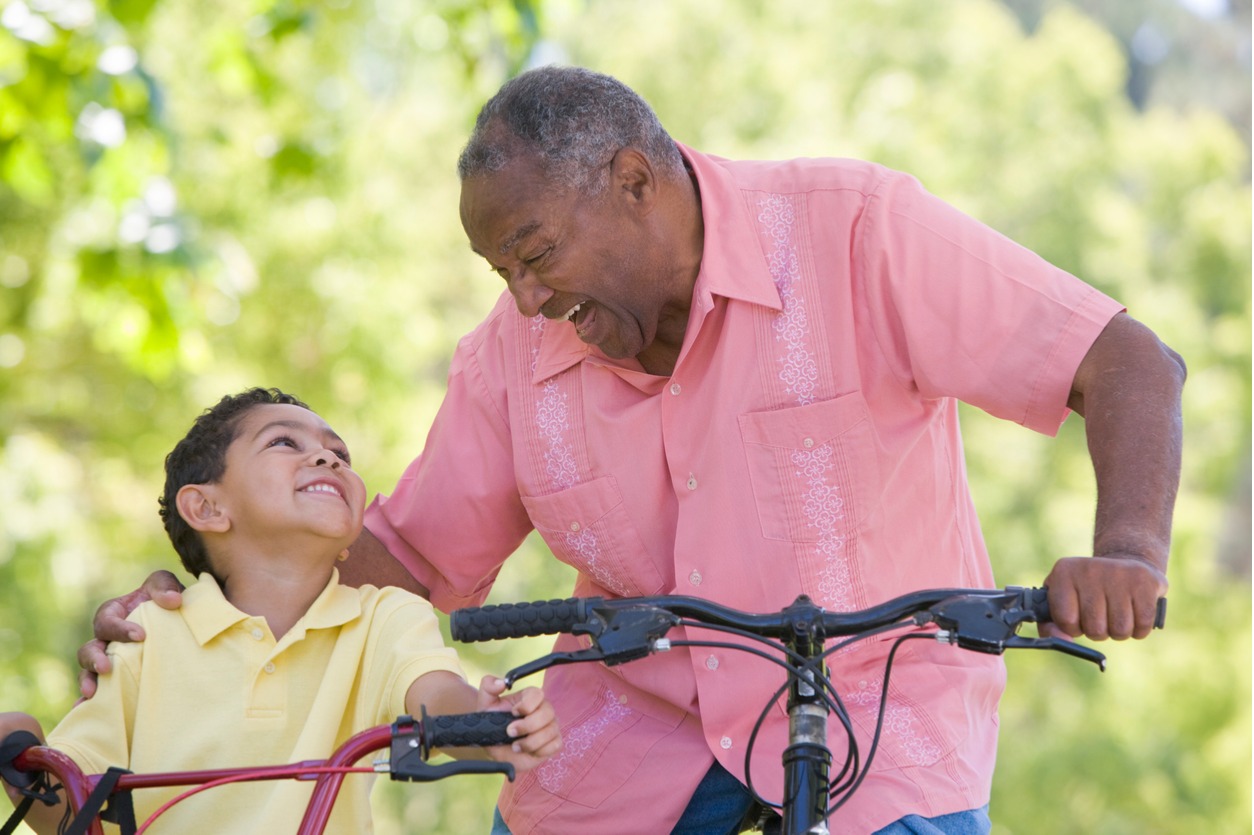Parenting Practices to Develop Healthy Habits for Kids

Written By: Laura J. Caccavale, PhD, Virginia Commonwealth University; Jacqueline Hayes, PhD, Warren Alpert Medical School of Brown University; Jennifer Mandelbaum, MPH, University of South Carolina; Sherecce A. Fields, PhD, Texas A&M University
Focusing on healthy eating, exercise, and positive body image is important for children’s mental and physical health. There are many ways you can support healthy habits for your kids and the rest of your family. Here are some things to consider.
Promote Healthy Habits for Kids and Activity for the Whole Family
Although there are a multitude of cues in our environments for less-healthy habits (ex: advertisements for snack foods), there are also many things parents can to do, such as focusing on things you can control.
- Help your child recognize their hunger and fullness cues by eating when hungry and stopping when full. Do not force them to be a member of the “clean plate club.”
- Encourage autonomy AND healthy choices by offering 2-3 options for food or activity and letting your child choose (ex: “Would you like an apple or a granola bar for a snack?”).
- Eat meals and snacks and encourage activity at consistent times each day.
- Focus on the health benefits of eating nutritious foods and getting physical activity (ex: “It is important to eat veggies because they give our bodies the nutrients they need,” “Going for a bike ride helps make our bodies strong”).
- Make it fun! Find nutritious foods and exercise options that your child enjoys and encourage her/him/they to try new things.
- Avoid calling foods good and bad. No foods should be forbidden. Instead, encourage moderation and set limits (ex: dessert every other day).
Be a Role Model in Behaviors and Language
Parents play a crucial role in helping shape children’s body image and nutrition. Consider how you promote healthy eating and exercise for kids, as well as the language you use to describe bodies and appearances. Healthy bodies can come in a variety of weights, shapes and sizes. The goal is to promote an acceptance of all body types.
- Role model being active yourself and trying new foods
- Find exercises for kids that your family might enjoy together (ex: going on a walk, family bike ride)
- Avoiding criticizing your own, your child’s or others’ appearances
- Focus on praising positive aspects in your child ex: kindness, love of learning) unrelated to appearance
- Teach your child not to compare themselves to others (ex: normalize differences)
Understand Peer Influence
While parents govern a lot of food choices in childhood, adolescence is a time of increased peer influence on decision-making around health and lifestyle behaviors. As children age into adolescence and emerging adulthood, peers become more of an influence on body image attitudes as well as eating and physical activity behaviors.
- Listen to your child’s concerns about their appearance and body size and shape. Help your child understand bodies are different for different people, particularly during puberty when children are developing at different times and rates. Help them learn not to compare their bodies with others.
- Talk to your child about ways to handle bullying and teasing about weight. If your child is being bullied, consider reaching out to school administration.
- Talk to your child about their friends’ perceptions about weight and dieting. Work with them to counteract negative appearance ideals.
- Model normative food choices, eating patterns and exercise.
Promote Media Literacy
Parents and caregivers can help build children’s resilience against diet culture and support positive body image by teaching children media literacy. Media literacy “involves critically examining media messages encouraging risky behaviors, stereotypes, and social ideals.”
- Help children understand many images in advertisements are digitally altered (ex: they have filters or use Photoshop) and do not represent the diverse body shapes and sizes in real life.
- Remember social media often shows a highlight reel of “perfect” images. The pictures you see may not present the full story.
- In addition to the media they consume, you and your child can also think critically about the information they share through social media. For example, before posting a picture, you might ask yourself if it promotes a healthy body image.
- Take control of the content you and your child see. Block content that may be triggering, and unfollow accounts that make you feel bad. Follow body positive accounts instead.
- Set limits around social media use. You might consider putting your phone and your child’s phone in a different room at certain times, like before bedtime and during dinner. You can also set limits for app use (here’s how to do that on the iPhone).
Practice Self-Compassion
It is normal and expected for there to be challenging times when working on health behavior changes. Practicing self-compassion is one way to help stay on track with goals and importantly can have a positive impact on both physical and mental health.
- Be kind and understanding when off track with goals.
- Recognize that everyone has challenges and setbacks along the way.
- Be non-judgmental, for example, when you see your child trying to suppress or deny thoughts or feelings, help them acknowledge them and remind them that these thoughts don’t define a person.
Finally, if you are concerned about a problem related to your child’s body image, eating habits, or health, don’t hesitate to reach out for professional assistance.
This article is a collaboration between SBM's Obesity & Eating Disorders and Child Health & Family Special Interest Groups.
More Articles

Tips for Parenting Healthy Habits in Kids with Mental Health Challenges
Getting daily movement and enough sleep can meaningfully improve kids’ mental health. Small, manageable changes can help develop life-long healthy habits that can make mental health conditions much more manageable.

Keeping Kids Active during COVID-19
The COVID-19 pandemic has made it challenging for parents to limit their children’s screen time and encourage physical activity. Learn tips and tricks to engage kids in physical activity when access to typical activities is restricted.


